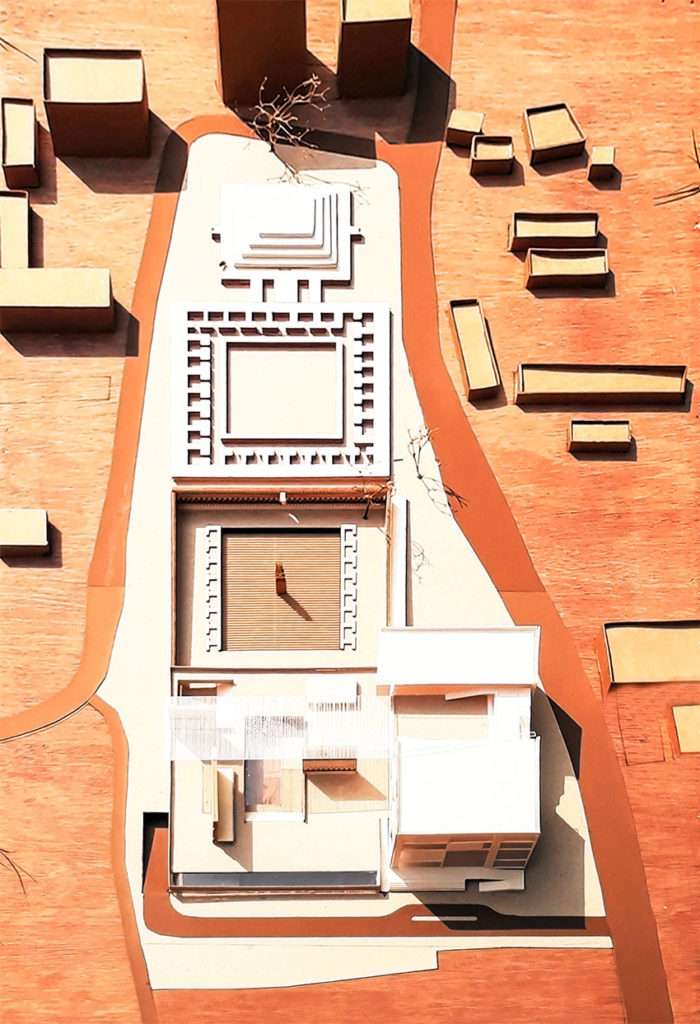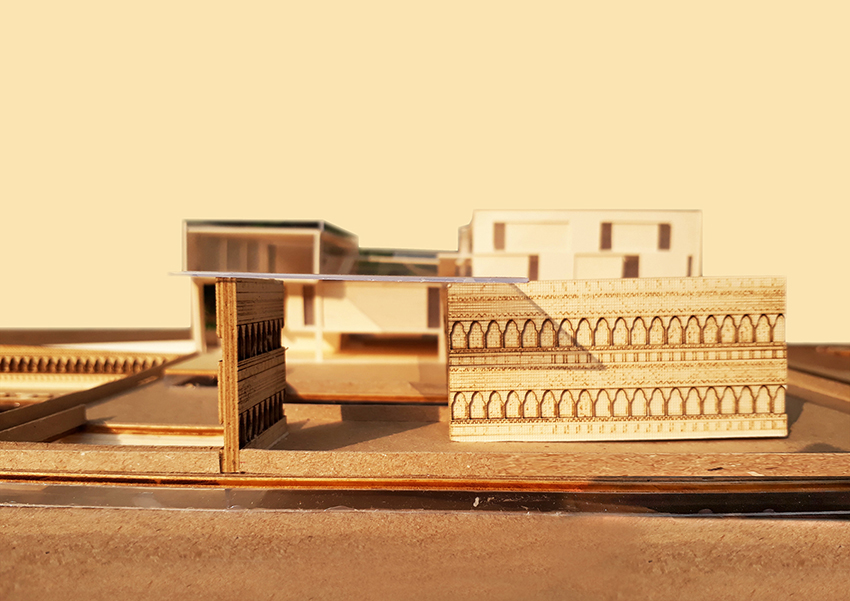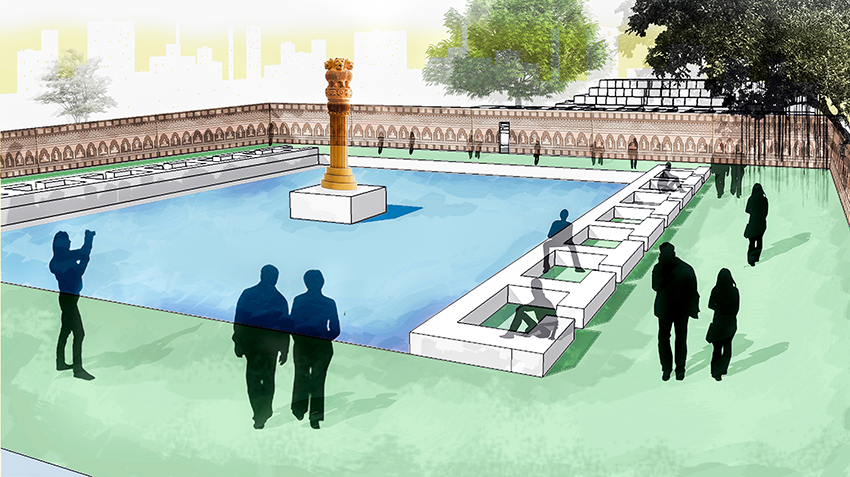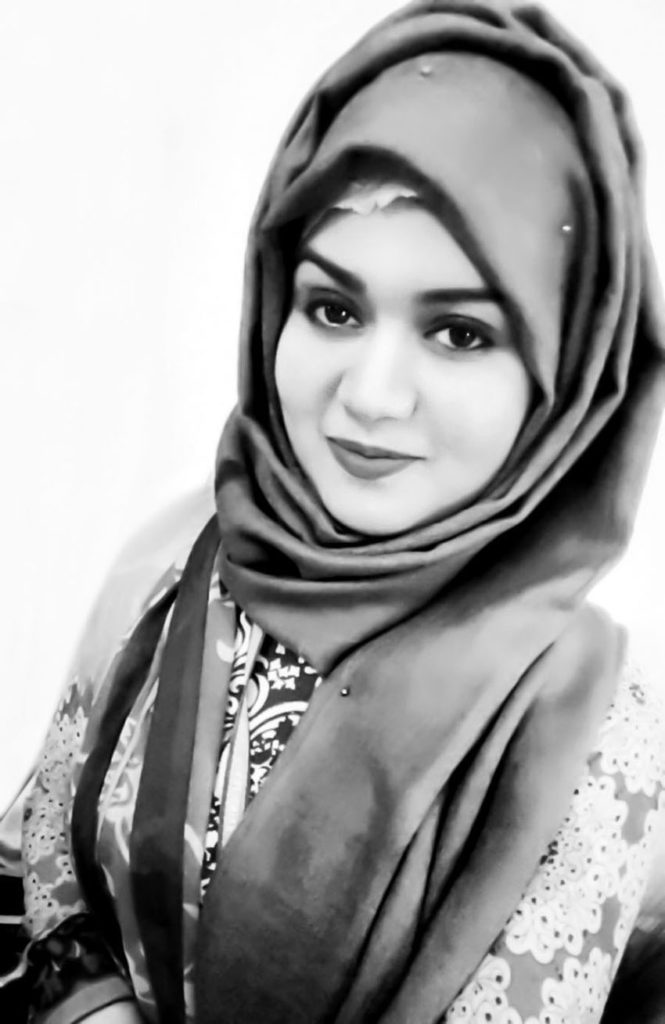Museum for Ancestors
Buddhist monastic remains have been found in Savar Upazila of Dhaka, which is locally known as King Harish Chandra Palace in Majidpur village, located to the east of the Savar Upazila. King Harish Chandra established his kingdom beside the river of Bangshi named Sambhara Rajjo which we now denote as Savar. Unfortunately, this heritage is on the verge of ruination due to sheer negligence and poor maintenance.

The main objective behind this project is to preserve the ancient Buddhist monastery by proposing an archaeological museum with library facilities, which will help to maintain this place as well as to enlighten people about the history of King Harish Chandra.

This project is proposed by Wasila Fatima Nilia, a student of American International University of Bangladesh. The concept of this project is derived from Buddhist ancient symbol ‘Endless knot’, which is described as a symbol representing the interweaving of the spiritual path, the flow of time and movement which is eternal. The museum represents as frozen time where people will visit the place to experience the past. This land is the silent witness of King Harish Chandra endowment and the journey through this frozen time will be perpetual.

This project has three basic zones which are divided into gallery, sightseeing and supporting functions. To avoid any sort of visual distraction of the monastery, the gallery portion is placed below ground level and the supporting mass to the right side of the mound. All these zones are well connected by a common lobby on the ground floor.

From the ground floor, visitors can directly go to level -30ft (first gallery), where they will gain knowledge about the Buddhist religion. After this, visitors will start to move upwards where they will experience the journey of king Harish Chandra’s life. The circulation and light-wells are all derived from the symbol ‘Endless knot’. From level -6ft, visitors will enter the ‘Thinking space’.


Intentionally the walls of the space are kept very high to provide the visitors some time to focus on the knowledge they have received and to concentrate on them properly without any contact to the outside world. Then from the temporary galley, they can go for sight visit and also other supporting functions like cafe library, multipurpose hall etc. The overall design represents the Buddhist Architecture of Bengal.
The whole purpose of the project is to make a better place that bears the rich history of king Harish Chandra where a visitor can be facilitated with the programs they need to have while visiting an archaeological site. This project will also enhance the socio-economic aspect of Savar Upazila.




